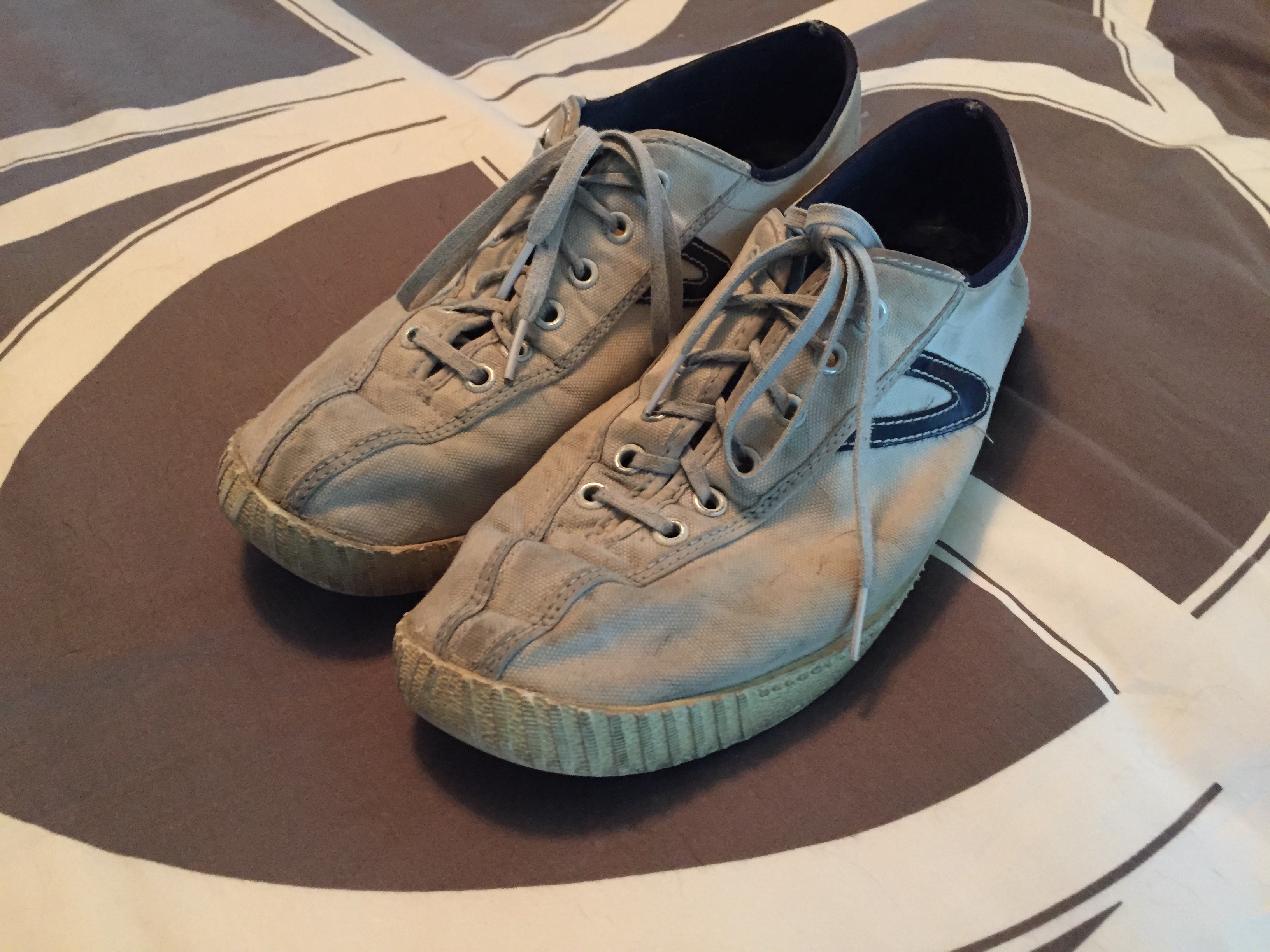
They were (and are) the perfect casual white sneaker.For as long as I knew my Grandpa Joe—roughly 25 years—he wore white Tretorn tennis shoes with blue trim. They were made popular in the preppy movement of the late 70s and early 80s, and made an appearance in “The Official Preppy Handbook.” I’m sure Gramps owned other shoes, but Tretorns were his signature. He played tennis in them, lounged in them. They were (and are) the perfect casual white sneaker.
I always saw him as the epitome of wit, class and intellect. A Yale grad, he volunteered to serve in World War II, and flew missions over Africa and Italy as a bombardier. After he returned, he got a job with Chicago Roller Skate Company, where he worked for more than 40 years until his retirement in 1985. When his brother and sister-in-law died in a plane crash, he took in their children and raised them as his own. He was everything you’d want in a grandfather—funny and playful when you wanted him to be, wise and thoughtful when you needed him to be, and more generous than anyone I’ve known since.
I’m certainly not alone in my admiration for him. My siblings and cousins maintain a certain reverence for my grandfather. His influence has shaped them in profound ways.He was, quite simply, my role model. And he wore the hell out of those Tretorns. I’m certainly not alone in my admiration for him. My siblings and cousins maintain a certain reverence for my grandfather. His influence has shaped them in profound ways.
I’d call his sense of style conservative preppy. I never saw him wear a T-shirt, and I’m not sure that he ever owned a pair of jeans. The Tretorns fit right in. They’re the perfect complement to khaki, madras, gingham or whatever happens to be de rigueur. Plus, they’re Swedish, which means they’re well-made and affordable.
RELATED: A Farewell to Hair – How I Learned to Embrace the Bald
I was living with my grandparents in Sarasota shortly after college as my grandpa’s health was declining. He wasn’t entirely himself when I lived with him. He was in the throes of dementia and had sporadic moments of lucidity. I remember the day he died. It wasn’t a surprise. He was living in a nursing home, and his kidneys were failing. But as prepared as I thought I was, there’s nothing quite like the gut punch feeling you get when it actually happens.
I saw in the aftermath of his death how impossible it is to move on after a spouse has died. My grandmother was surrounded by his memory wherever she looked. I was roughly the same size as Gramps was, so Granny, a product of the Depression who was never one to waste even an aspirin bottle cotton ball, told me to go through grandpa’s closet and take whatever I thought I would use.


